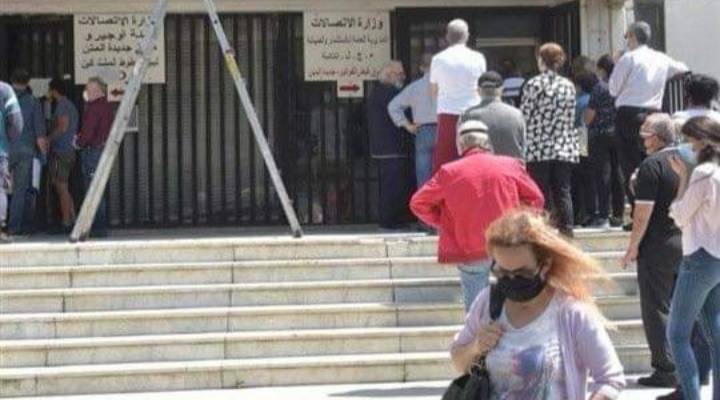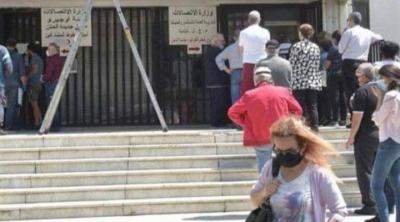The telecommunications sector has insisted on following in the footsteps of electricity in humiliating the Lebanese and continuing to disrupt what remains of their livelihoods, deciding to join in. A fivefold increase in the sector's bills (which is likely to rise with every increase in the market rate) has not secured even the minimum level of service. Communications have deteriorated, becoming more prone to interruptions, internet speeds have slowed, and malfunctions continued in transmission towers. This "chaos" of intertwined crises was only exacerbated by the strike of employees from the mobile phone companies and the subsequent participation of "Ogero" employees. The nation's connections were partially severed, businesses were disrupted, and the country was left hanging "by a thread" with the shutdown of the "Ras Beirut" and "Jdeideh" exchanges, leading Lebanon further towards isolation from the world.
The duration of the Ogero employees' strike was not long before the disastrous consequences began to appear in succession. Just one day after the "General Union of Employees and Workers in Wire and Wireless Communications" announced the open-ended strike, the red, Sidon, river, Beiteddine, Damour, and Nabatiyeh exchanges completely went offline. Furthermore, the companies "IDM" and "Cyberia," providing internet services, reported widespread internet service interruptions for many subscribers in the capital, Beirut, followed by other service providers in several regions. The consequences of these outages remain limited for now, as "these exchanges are small, covering between 80,000 to 100,000 subscribers," according to a former member of the Ogero employees' union. "However, the danger lies in the shutdown of the 'Ras Beirut' and 'Jdeideh' exchanges, which represent the 'gateways for internet entry and exit' in and out of Lebanon. When that happens, internet services across all of Lebanon will halt, disrupting cellular network communications linked through Ogero, stopping internal correspondence between banks and external communications, and losing security institutions' ability to communicate with one another. Even illegal communication services through their own internet networks will also stop, truly isolating Lebanon from the world."
According to the source, "The likelihood of outages is very high due to hot weather and the constant need to supply 24/7 generators with fuel and maintain them." Unlike mobile phone employees, who receive their salaries in dollars at a rate of 8,000 Lebanese pounds, averaging $2,000, telecommunications workers' salaries have not been adjusted. They still receive salaries in Lebanese pounds at an exchange rate of 1,500, along with social assistance ranging between 1.5 million and 3 million Lebanese pounds, similar to other public sector employees.
The source lamented that the increase in telecommunication, internal and external communication fees, and internet charges has increased telecommunications revenue by 225 percent, which goes directly to the treasury, without translating into increased revenues for Ogero or improving its ability to raise employee salaries. The source confirmed that, as employees, they are not in favor of the disruption; had they been, they would not have endured this situation since 2019. "However, today, with the negligence from the Ministry of Telecommunications and its minister, and everyone involved in this file, it is no longer possible to remain silent. To succumb to this reality is akin to self-destruction, and this is something we will not accept for ourselves or our families." This reflects that the problem in Lebanon is not merely a "pecuniary issue" but rather "full hearts" due to failures in management and operations.




